The "1963 Birmingham Civil Rights Experience – Black History Matters Walking Tour" transports visitors through the pivotal sites that shaped the Civil Rights Movement. Led by knowledgeable local guides, this acclaimed tour provides a profound exploration of Birmingham’s rich history and the ongoing struggle for equality. From the emotional significance of Kelly Ingram Park to the legacy of the 16th Street Baptist Church, each stop along the way offers a chance to connect with the personal stories and unwavering resilience that defined this crucial chapter in America’s past. Discover how the events that unfolded in Birmingham continue to inspire and inform the fight for justice today.
This experience made our list of the 6 Best Historical Tours In Birmingham.
Good To Know
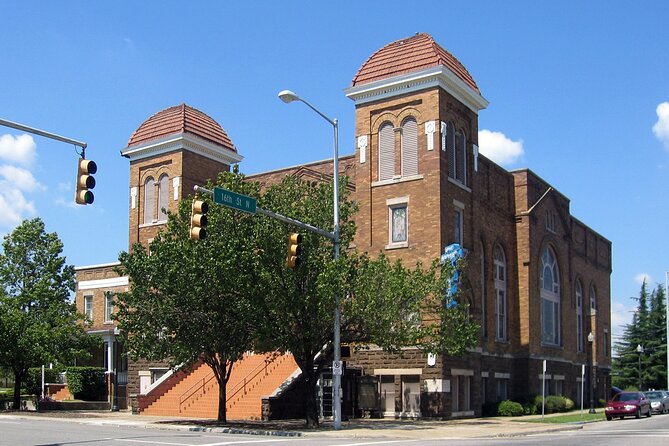
-
Highly-rated tour exploring Birmingham’s pivotal role in the 1960s Civil Rights Movement, including visits to key historic sites like Kelly Ingram Park and 16th Street Baptist Church.
-
Local guides provide personal stories and historical context to enhance understanding of the era’s struggles for racial equality and justice.
-
Tour highlights the significance of the 1963 Birmingham campaign, marked by massive demonstrations and violent police crackdowns, as a turning point in the Civil Rights Movement.
-
Carver Theatre serves as a symbol of the Black community’s cultural resistance and resilience during the Civil Rights era.
-
Powerful emotional impact as the tour inspires profound reflections on the sacrifices and ongoing legacy of the civil rights struggle.
Tour Overview
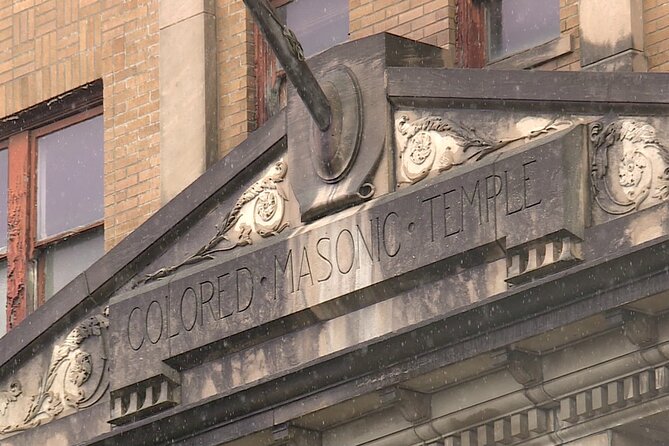
The ‘1963 Birmingham Civil Rights Experience – Black History Matters Walking Tour’ is a highly rated tour offered by the Birmingham Historic Touring Company.
This walking tour explores Birmingham’s pivotal role in the 1963 Civil Rights movement. With a 4.8-star rating from 18 reviews and 100% traveler recommendation, the tour provides an immersive experience for those interested in Black history and social justice advocacy.
Priced from $50.00 per person, the tour allows a maximum group size of 30 travelers and is wheelchair, stroller, and service animal accessible.
Participants will visit key locations like Kelly Ingram Park, 16th Street Baptist Church, and Carver Theatre, gaining insightful guidance from knowledgeable local guides.
You can also read our reviews of more walking tours in Birmingham
Key Attractions Explored
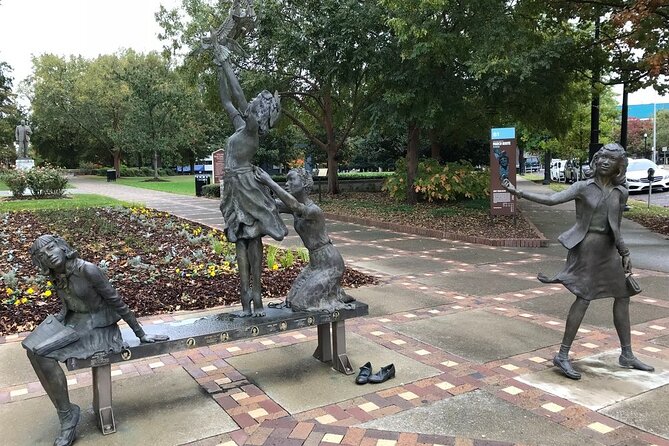
The tour takes visitors on an immersive exploration of Birmingham’s pivotal role in the 1963 Civil Rights movement.
Travelers visit Kelly Ingram Park, the site of historic protests and confrontations with law enforcement. The 16th Street Baptist Church, the location of a deadly bombing that galvanized the movement, is another key stop.
The tour also includes the Carver Theatre for the Performing Arts, a hub of African-American arts and culture during the era.
Throughout the experience, the local guide provides insightful commentary, sharing personal stories and historical context that bring this transformative period to life.
History of Birmingham’s Civil Rights Movement
Birmingham played a pivotal role in the Civil Rights Movement of the 1960s. The city’s history was marked by racial segregation, discrimination, and violence against African Americans.
In 1963, Birmingham became the epicenter of the movement, with massive demonstrations, boycotts, and the infamous attack on peaceful protesters by police. The 16th Street Baptist Church bombing, which killed four young girls, shocked the nation and galvanized support for civil rights.
Today, Birmingham’s civil rights sites, like Kelly Ingram Park and the Carver Theatre, serve as powerful reminders of the bravery and sacrifices of those who fought for equality and justice.
Significance of Kelly Ingram Park
Located at the intersection of 16th Street and 6th Avenue North, Kelly Ingram Park stands as a poignant reminder of Birmingham’s pivotal role in the Civil Rights Movement. The park was the site of numerous peaceful protests and violent crackdowns by authorities during the 1963 Birmingham campaign. Today, it features powerful sculptures and memorials that evoke the struggle and sacrifice of the era.
| Memorial | Significance |
|---|---|
| The Four Spirits | Commemorates the four young girls killed in the 1963 16th Street Baptist Church bombing |
| The Children’s Crusade | Honors the thousands of student activists who marched for equality |
| The Firefighter’s Nozzle | Symbolizes the brutality of fire hoses used against protesters |
Legacy of the 16th Street Baptist Church
On September 15, 1963, a horrific bombing at the 16th Street Baptist Church in Birmingham became a pivotal moment in the Civil Rights Movement.
The church’s legacy as a hub for civil rights activism was cemented that day, as four young girls were killed in the attack.
The 16th Street Baptist Church:
- Served as a meeting place for civil rights leaders, including Martin Luther King Jr.
- Hosted workshops, voter registration drives, and other organizing efforts during the Movement.
- Stood as a symbol of the struggle for racial justice and equality.
- Continues to inspire activism and commemorate the sacrifices of the Civil Rights era.
The 16th Street Baptist Church remains a poignant reminder of the courage and resilience of the Birmingham community during a tumultuous time.
You can also read our reviews of more historical tours in Birmingham
- 2.5-Hours Walking Tour of Birmingham Into Black Heritage Madiba
- Iconic Birmingham: A Journey Through Heart & Heritage
- Birmingham Gangs Nighttime Historical Walking Tour With Pub Stops
- Historical Highlights of Birmingham
- 1963 Birmingham Civil Rights Experience – Black History Matters Walking Tour
- Pride History of Birmingham Tour
Carver Theatre and Cultural Resistance
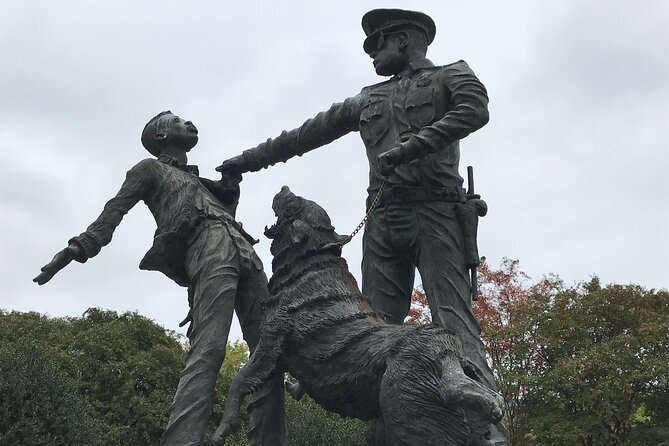
As a hub of cultural resistance during the Civil Rights Movement, the Carver Theatre for the Performing Arts played a vital role in Birmingham’s fight for equality.
The historic theatre hosted influential speakers, musicians, and activists, providing a platform for their voices to be heard. It served as a gathering place where the community could come together, find strength in solidarity, and organize strategies for change.
The Carver Theatre became a symbol of the Black community’s resilience and determination to overcome oppression through the power of art, music, and collective action. It remains an enduring testament to the role of cultural institutions in the pursuit of social justice.
Personal Stories From Local Guides
One of the key highlights of the 1963 Birmingham Civil Rights Experience tour is the opportunity for participants to hear personal stories from the local guides.
These guides, often Birmingham natives, share intimate accounts of the city’s civil rights struggles and the impact they’d on the community. Travelers appreciate the emotional weight of these stories, which bring the historical events to life in a profoundly personal way.
The guides’ narratives cover:
- First-hand experiences of the 1963 Birmingham campaign
- Eyewitness accounts of police brutality and the bombing of the 16th Street Baptist Church
- Inspiring stories of local heroes and their courageous acts of resistance
- The lasting legacy of the civil rights movement in Birmingham.
Emotional Impact and Reflections
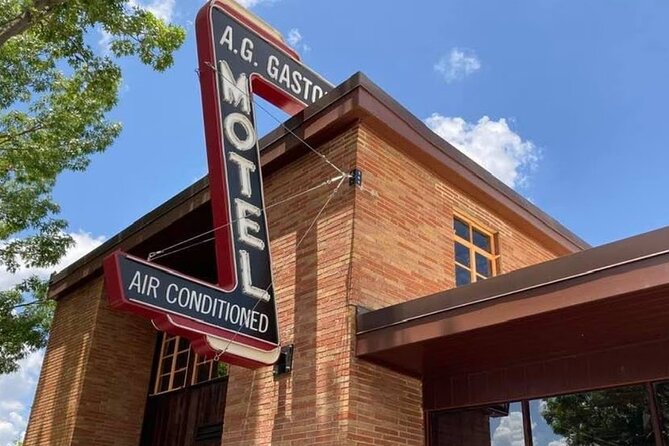
The 1963 Birmingham Civil Rights Experience tour deeply moves many participants, leaving a lasting impact on their understanding and appreciation of the city’s civil rights history.
Travelers express feeling emotionally overwhelmed as they walk in the footsteps of the brave activists who risked their lives for equality.
The tour’s focus on personal stories and first-hand accounts humanizes the struggle, inspiring participants to reflect on the sacrifice and resilience of the civil rights movement.
Many leave the tour with a renewed sense of social justice and a commitment to continue the fight for racial equity.
The powerful experience generates profound personal reflections on the ongoing struggle for civil rights.
Things To Known
What Is the Duration of the Walking Tour?
The tour’s duration is not explicitly stated in the provided information. However, as a walking tour, it is likely to last several hours to allow for exploration of the key historical sites and provide in-depth commentary from the local guide.
Can the Meeting Point Be Changed for the Tour?
The meeting point cannot be changed for this tour. The tour starts and ends at the designated meeting point of 285 20th St N, Birmingham, AL 35203, USA. The provider does not offer flexibility in the starting and ending locations.
What Is the Dress Code for the Tour?
The tour has no formal dress code, but comfortable walking shoes and weather-appropriate clothing are recommended. Participants should dress in a manner that allows them to move easily during the walking portions of the experience.
Can Participants Bring Their Own Water/Snacks?
According to the tour information, participants are welcome to bring their own water and snacks. This allows them to stay hydrated and refueled during the walking tour, which covers several key historical sites over an extended period.
Are Photography and Video Recordings Allowed During the Tour?
Participants are generally allowed to take photographs and record video during the tour, though they should be respectful and avoid disrupting the guide or other travelers. Policies may vary, so it’s best to check with the tour provider beforehand.
Sum Up
The "1963 Birmingham Civil Rights Experience – Black History Matters Walking Tour" offers an impactful exploration of Birmingham’s pivotal role in the Civil Rights Movement. Visitors gain profound insights into the struggles, resilience, and enduring legacy of the fight for equality through engrossing personal narratives and immersive visits to landmark sites. This tour provides a powerful opportunity to connect with the city’s history and honor the courageous individuals who shaped America’s civil rights progress.
More Walking Tours in Birmingham
- Footlights & Felonies: A Walking Tour of Vaudeville, Film & Crime
- Alabama Art Walk: Birmingham District Bonanza Bash
- Birmingham Self Guided City Walk and Interactive Treasure Hunt
- Private Birmingham Ghosts and Gallows Walking Tour
- Birmingham Must-see Attractions Walking Tour With A Guide
- 2 Hour Private Walking Tour of Birmingham
More Tours in Birmingham
More Tour Reviews in Birmingham
Not for you? Here's more nearby things to do in Birmingham we have reviewed
- Taste of Tuscaloosa, Brewery Tasting Tour
- Birmingham Civil Rights Scavenger Interactive Hunt Activity
- Tuscaloosa Bar Golf Pub Crawl
- Tuscaloosa Boutiques Tour
- VIP “TwentyFun” Birthday Tour
- Pokémon GO Tour
- Footsteps to Freedom Self-Guided Tour Through Birmingham
- Historical Golf Cart Tour of Tuscaloosa Landmarks
- Footlights & Felonies: A Walking Tour of Vaudeville, Film & Crime
- Alabama Art Walk: Birmingham District Bonanza Bash
- University Scavenger Hunt: University of Alabama Adventure
- Super City Birmingham Hop On Hop Off Driving App Tour
